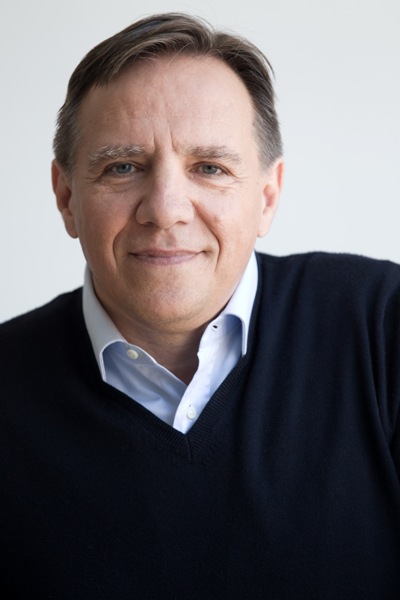Canada News
What will it take for Anglo Quebecers to ditch the provincial Liberals?

File Photo: “A horse doesn’t change its colour.” (Photo By Jimmy Hamelin/Wikimedia, CC BY-SA 3.0)
MONTREAL — One word that often surfaces during discussions with Montreal’s English-speaking community regarding Francois Legault, head of the party leading Quebec’s election polls, is “trust” — or the lack of it.
Legault’s message of having a strong, nationalist Quebec inside Canada, working for families and making all citizens richer has gained support across most of the province — but less so on Montreal’s “West Island.”
Ridings in the sprawling middle-class suburbs west of downtown delivered Liberal majorities topping 80 per cent in the 2014 election, in large part because residents there are fiercely federalist.
People there bring up Legault’s past as a staunchly sovereigntist Parti Quebecois cabinet minister. They remember how in 2005, in his role as PQ finance critic, Legault proudly produced a report indicating Quebec would record a budgetary surplus its first year as an independent country.
As leader of Coalition avenir Quebec, the party he founded in 2011, Legault now says his government will “never, never hold a referendum on Quebec sovereignty.”
His party has led the polls for months and is considered the front-runner ahead of the Oct. 1 election.
Referendums aside, what his party would mean for Quebec’s Anglos is largely unclear because the Coalition has never held power.
“A horse doesn’t change its colour,” Liberal voter Mohan Patel, 66, said at the Fairview Pointe-Claire shopping centre, located virtually in the geographical middle of the West Island. “I don’t trust (Legault).”
Legault must know he needs more than words to persuade a significant number of Anglophones to switch to his party, but whether he cares is another matter.
Pollsters say the Coalition can win a majority of the province’s 125 seats without taking any of the 27 ridings on the island of Montreal, where the province’s English-speaking community is heavily concentrated.
Legault openly muses he has absolutely “nothing” specific to offer Quebec’s Anglos.
“Nothing more, nothing less than the Liberals,” he said recently.
“All the Liberals have proposed Anglophones is that they wouldn’t hold a referendum — that’s not much of a policy.”
If elected, Legault pledges to improve the economy and education and increase access to doctors.
“We’ll protect (Anglo) rights like the Liberals have, but we’ll be richer … that’s as good for Anglos as it is for Francos,” he said.
Prominent lawyer Casper Bloom, who has worked for English-language rights in Quebec and is a Liberal party member, said he knows Anglophones who will switch to the Coalition.
“The English-speaking community is asking (the Liberals): ‘What have you done for us?’ “ Bloom said in an interview. “Not what have you done for us lately, but what have you done for us?”
Quebec elections used to be easy for English-speakers, he said.
“It was the good guys versus the bad guys,” Bloom said, referring to the pro-independence PQ as the bad guys.
But with PQ Leader Jean-Francois Lisee promising to not hold a referendum until at least 2022 and his party trailing in third place in polls, Anglophones are voting for the first time in decades in a provincial election in which the prospect of vicious, political fighting about Canada’s future is not an issue.
Additionally, they have a federalist alternative to the Liberals: Legault’s Coalition.
The last time Quebec Anglophones revolted against the Liberals was in the late 1980s, when then-Liberal premier Robert Bourassa maintained the province’s strict language laws.
In 1989, voters in heavy English-speaking ridings elected four members of the Equality party, a newly formed, Anglo-rights political formation. The party never won another seat in subsequent elections.
This time around, Anglos aren’t nearly as upset with pro-Canada Premier Philippe Couillard as they were with Bourassa in 1989, but many still feel taken for granted, Bloom said.
“I expect we are going to find more (Anglophones) staying home and not voting at all,” Bloom said. “Will it make a difference in the outcome? In strong Liberal ridings, no.”
Back at Fairview, Sallie Mackenzie, 53, said she isn’t too happy with all the accusations of corruption that have dogged the Liberals for years.
But she doesn’t know if she’ll make the jump to the Coalition.
“I absolutely won’t vote PQ,” she said, laughing. “I’m not sure I can (trust the Coalition) — that’s the thing.”
Larry, 64, who didn’t want to give his family name, said he won’t choose Legault.
“Even if (Legault) says he won’t have a referendum, the guy is a former separatist and so is half his party,” he said. “So whether I like what the Liberals are doing or not, at least they (won’t) separate.”
And while Legault says he will protect the rights of Quebec’s Anglophones, he doesn’t seem to be particularly interested in seeing the community’s numbers increase.
The 2016 census indicated Quebec had slightly more than 964,000 people who claimed English as their first official language spoken.
When asked earlier this week at an event on Montreal’s south shore if he wanted to see the community grow in Quebec, Legault wavered.
“We have to be careful,” Legault said, standing next to his new candidate for the area, Martyne Prevost, who twice ran unsuccessfully for the PQ.
“We have to protect French,” he said. “English will always be protected because of the size of the anglophone community in North America.”





















